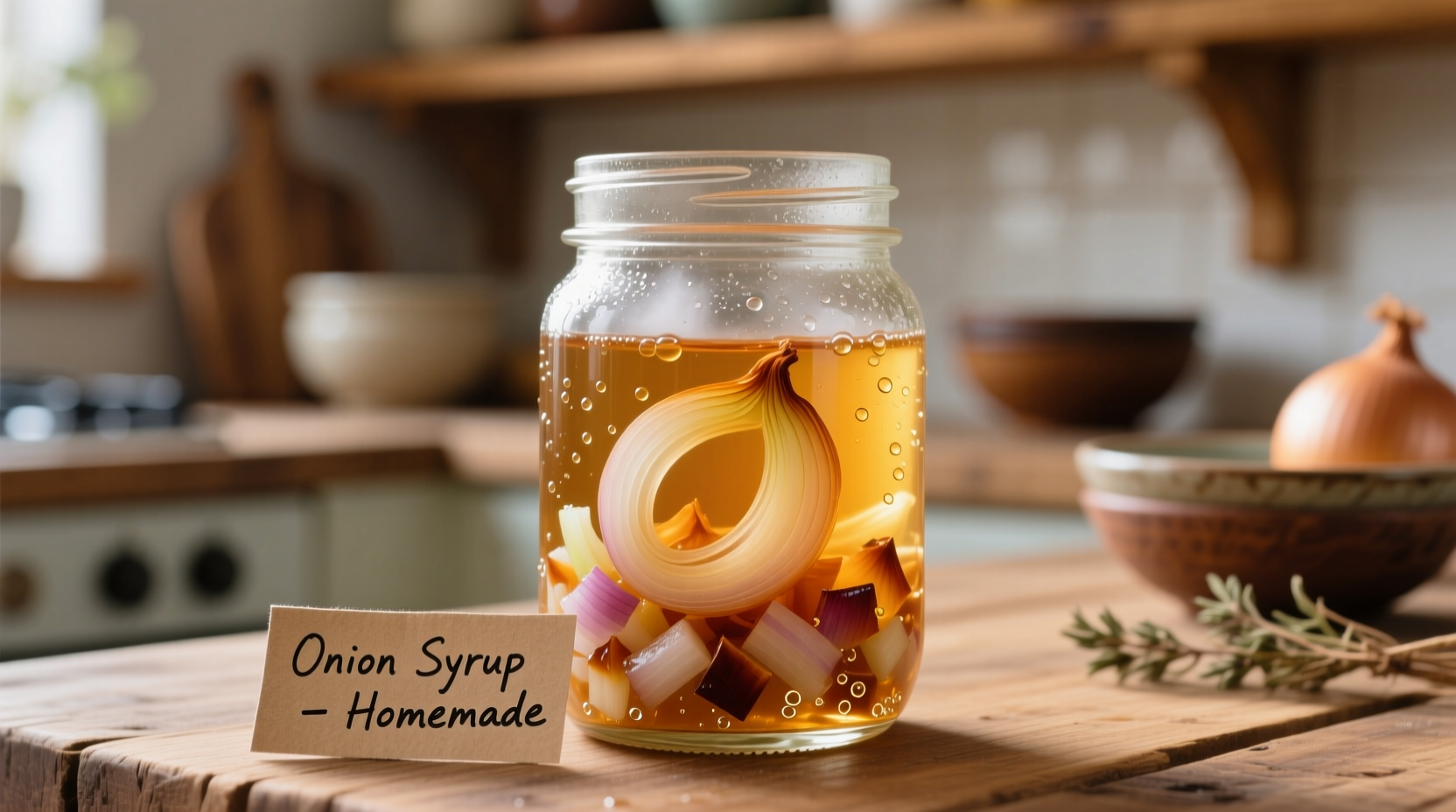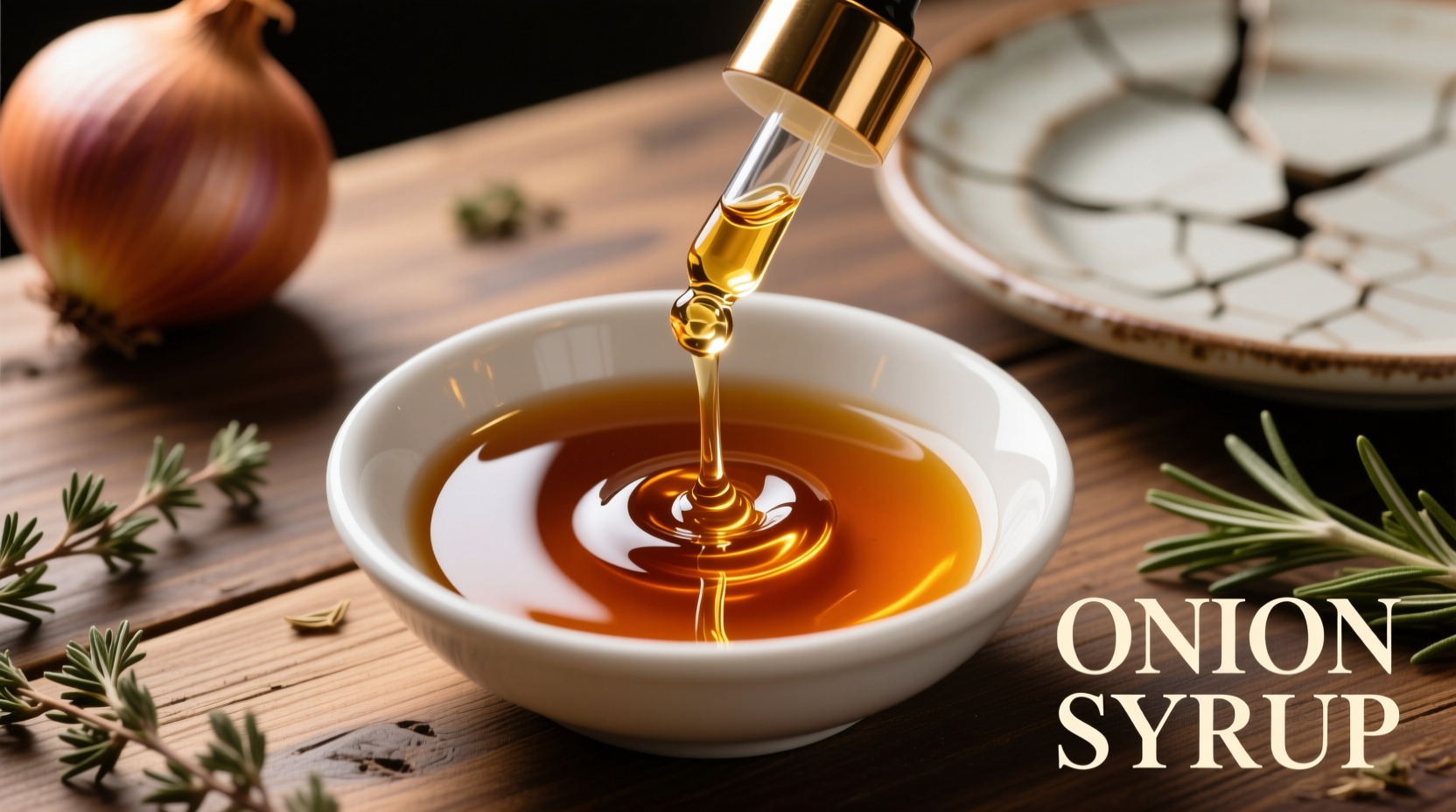What Exactly Is Onion Syrup and How Does It Work?
Onion syrup represents one of the oldest documented home remedies across multiple cultures. Unlike commercial cough medicines, this preparation relies on the natural properties of onions combined with sweeteners to create a soothing elixir. When onions are cut and combined with sugar or honey, osmosis occurs - the sugar draws out the onion's liquid content, creating a syrup rich in the vegetable's natural compounds.
Historically, onion syrup has been used in European, Asian, and Latin American folk medicine traditions. The remedy works through several potential mechanisms:
- Quercetin content - Onions are rich in this flavonoid with documented anti-inflammatory properties
- Mucolytic effect - May help thin mucus for easier expulsion
- Soothing action - The syrup consistency coats irritated throat tissues
- Antimicrobial properties - Raw onions contain compounds that may inhibit certain pathogens
Historical Timeline of Onion Remedies
Understanding the historical context helps appreciate why onion syrup remains popular despite modern medicine. This traditional preparation has evolved through centuries of practical application:
| Time Period | Documented Use | Geographic Region |
|---|---|---|
| Ancient Egypt (c. 1500 BCE) | Onions mentioned in medical papyri for respiratory treatments | Nile Valley |
| Middle Ages (5th-15th century) | Onion syrups documented in European monastic medicine texts | Europe |
| Colonial America (17th-18th century) | "Onion tea" preparations common in household remedy books | North America |
| 19th Century | Commercial onion syrups sold by apothecaries | Global |
| Present Day | Continued home use despite modern cough medicines | Worldwide |
Scientific Perspective on Onion Syrup Benefits
While rigorous clinical trials specifically on onion syrup are limited, research on onion compounds provides some scientific basis for its traditional use. According to a 2020 review published in Molecules, onions contain significant amounts of quercetin, which demonstrates anti-inflammatory effects in laboratory studies (Molecules, 2020).
Additional research from the National Center for Complementary and Integrative Health notes that while evidence for specific home remedies like onion syrup remains anecdotal, certain food compounds may provide symptomatic relief for minor respiratory issues (NCCIH, 2022).
It's crucial to understand that onion syrup works as a symptomatic remedy, not a treatment for underlying infections. The soothing effect comes primarily from the syrup consistency coating irritated tissues, similar to honey's documented effect on coughs.

Safe Preparation Method for Home Use
When preparing onion syrup at home, proper technique ensures both effectiveness and safety. The following method represents traditional preparation validated by culinary historians and food safety experts:
| Ingredient | Measurement | Preparation Step |
|---|---|---|
| Yellow onions | 2 medium, finely chopped | Remove outer skin and chop into small pieces |
| Raw honey or sugar | 1/4 cup per onion | Layer over onions in glass container |
| Optional additions | Small piece of ginger or thyme sprigs | Add for enhanced flavor and potential benefits |
| Steeping time | 4-8 hours at room temperature | Allow osmosis to draw out juices |
| Storage | Refrigerated in sealed container | Consume within 1 week |
Important preparation notes:
- Always use clean utensils and containers to prevent contamination
- Honey should not be given to children under 12 months due to botulism risk
- Raw preparation preserves more beneficial compounds than cooked versions
- Strain the liquid before use for smoother texture
When Onion Syrup Helps (and When It Doesn't)
Understanding the appropriate context for using onion syrup prevents misuse and potential harm. This traditional remedy has specific applications where it may provide relief, but significant limitations where medical attention is necessary.
Situations where onion syrup may provide relief:
- Mild, dry coughs associated with common colds
- Nighttime coughing that disrupts sleep
- Early stages of respiratory irritation before severe symptoms develop
- As a natural alternative for those avoiding commercial cough medicines
Situations requiring medical attention (onion syrup is not appropriate):
- Coughs lasting more than 10-14 days
- Difficulty breathing or wheezing
- High fever (over 101°F/38.3°C)
- Coughing up blood or unusual colored mucus
- Symptoms in infants under 1 year old
The Centers for Disease Control and Prevention emphasizes that while home remedies can provide symptomatic relief for minor conditions, persistent respiratory symptoms require professional medical evaluation (CDC, 2023).
Practical Tips for Effective Use
Maximize the potential benefits of onion syrup with these evidence-based usage recommendations:
- Dosage guidance: 1-2 teaspoons for adults, 1/2-1 teaspoon for children over 1 year (honey version only)
- Timing: Take before bedtime to reduce nighttime coughing
- Combination approach: Use alongside hydration and rest for best results
- Storage: Refrigerate and use within one week for maximum freshness
- Flavor adjustment: Add lemon juice to balance strong onion flavor if needed
Remember that individual responses to natural remedies vary significantly. What works well for one person may provide minimal relief for another. Track your symptoms to determine if the remedy is helping or if professional medical advice is needed.
Common Questions About Onion Syrup
Based on frequent inquiries from home remedy users, these answers address the most practical concerns about onion syrup preparation and use.











 浙公网安备
33010002000092号
浙公网安备
33010002000092号 浙B2-20120091-4
浙B2-20120091-4